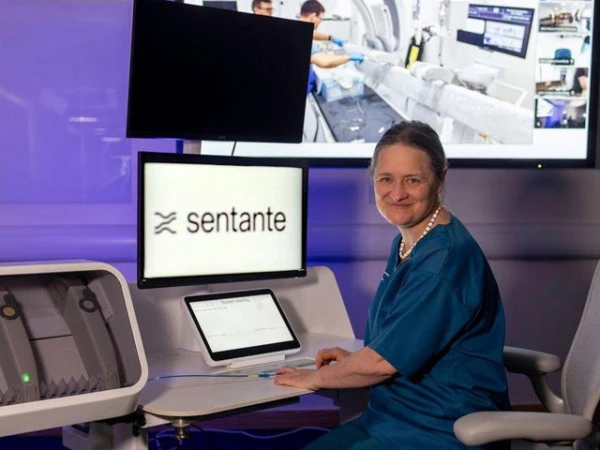World’s First Remote Stroke Surgery Performed Across 4,000 Miles
SCOTLAND: World’s First Remote Stroke Surgery Performed Across 4,000 Miles
In a groundbreaking medical achievement, surgeons from Scotland and the United States have successfully completed the world’s first remote stroke surgery, conducted over a distance of 4,000 miles using robotic technology.
According to British media reports, the historic operation took place at the University of Dundee in Scotland.
Professor Iris Grunwald from the University of Dundee performed a remote thrombectomy — a complex procedure to remove a blood clot after a stroke — from Ninewells Hospital, while the human body used for the operation was located elsewhere on campus.
Later, Florida-based neurosurgeon Dr. Ricardo Hanel conducted the world’s first transatlantic robotic surgery from Jacksonville on a human body in Dundee.
The medical team hailed the success as a game-changer, saying it could revolutionize stroke care by making advanced surgical treatment available in regions lacking specialist doctors. Experts noted that remote robotic procedures can significantly reduce complications caused by treatment delays.
Professor Grunwald described the experience as a glimpse into the future, once thought to be science fiction, now made possible through technology.
The University of Dundee, a global training hub for interventional stroke treatment, remains the only UK institution capable of performing such operations on human bodies with simulated blood flow.
Juliet Bouverie, Chief Executive of the Stroke Association, called the transatlantic surgery a remarkable innovation, saying it could help eliminate healthcare disparities in remote and rural areas.
Researchers believe this success marks a major step toward making remote stroke care accessible worldwide, allowing patients to receive lifesaving surgery without the need for long-distance travel.


Comments are closed.